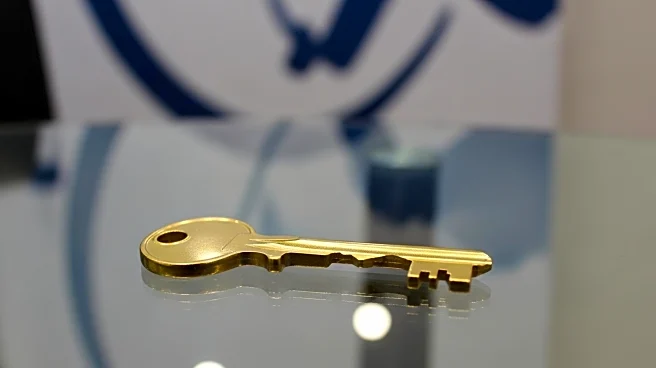What is the story about?
What's Happening?
In a recent episode of the podcast 'Behind the Curtain: Adventures in Continuous Improvement,' hosts Dr. Mohamed Saleh and John Dyer explored the role of empathy in leadership. The discussion focused on the distinction between empathy and sympathy, emphasizing the importance of active listening and making others feel heard. Saleh and Dyer highlighted the need for leaders to act on the information they receive, rather than merely serving as a sounding board. They argued that empathy involves understanding the frustrations faced by team members and showing genuine concern and vulnerability. The podcast also touched on the importance of mindfulness and emotional intelligence as components of empathy, noting that some organizations mistakenly view empathy as a weakness.
Why It's Important?
The emphasis on empathy in leadership is significant as it challenges traditional views that often prioritize authority and decision-making over emotional intelligence. By advocating for empathy, Saleh and Dyer suggest that leaders can foster a more inclusive and supportive work environment, which can lead to improved team dynamics and productivity. Empathy allows leaders to better understand the challenges faced by their teams, potentially leading to more effective problem-solving and innovation. Organizations that embrace empathy may benefit from higher employee satisfaction and retention, as team members feel valued and understood.
What's Next?
As the conversation around empathy in leadership continues, organizations may begin to reevaluate their criteria for promotions and leadership roles. There could be a shift towards prioritizing emotional intelligence and empathy in leadership development programs. This change may prompt leaders to adopt new strategies for team management, focusing on active listening and understanding team members' needs. Additionally, companies might implement training programs to enhance empathy skills among their leaders, aiming to create a more supportive and productive workplace culture.
Beyond the Headlines
The discussion on empathy in leadership also raises ethical considerations about the balance between emotional intelligence and traditional leadership skills. As organizations increasingly value empathy, there may be a cultural shift towards more humane and understanding workplaces. This could lead to long-term changes in corporate culture, where emotional intelligence becomes a standard expectation for leaders. Furthermore, the integration of empathy into leadership practices might influence broader societal norms, encouraging more empathetic interactions in various aspects of life.
















